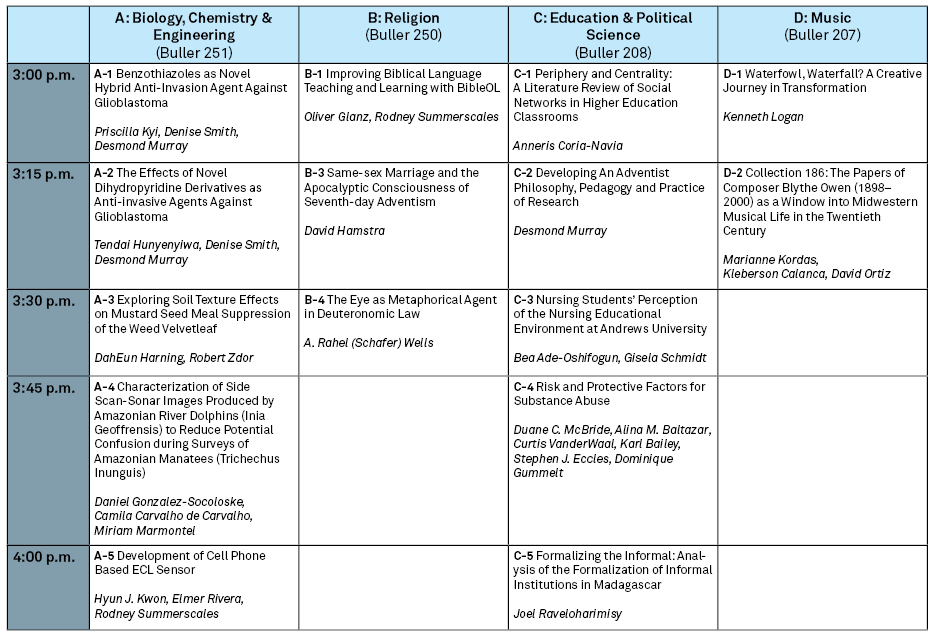Presenter Status
ThD Student, Seventh-day Adventist Theological Seminary
Preferred Session
Oral Session
Start Date
26-10-2018 3:15 PM
End Date
26-10-2018 3:30 PM
Presentation Abstract
Arguments made for and against affirming same-sex marriage in Seventh-day Adventism rely on typical moral background presuppositions about immanent and transcendent goods identified by Charles Taylor in his philosophical genealogy of A Secular Age. Arguments made only in terms of marriage’s immanent goods have the potential to diminish the plausibility of a uniquely Adventist way of imagining the transcendent: apocalyptic consciousness focused on the immanent/imminent restoration of Eden by Jesus Christ following the second coming. Comparing marriage to the this-worldly and next-worldly benefits of divergent Adventist Sabbath-keeping practices foregrounds the availability of immanentized moral presuppositions to make sense of Adventist ethical hermeneutics. But practices that entail giving up immanent goods for the transcendent good of Eden restored can be authentically sustained through communal recognition. Adventism should develop practices of recognition both to alleviate losses incurred by those who make sacrifices for traditional marriage as a transcendent good and to reinforce the fuller sense of meaning found in self-denial for the sake of the soon-coming Savior.
Included in
Christian Denominations and Sects Commons, Continental Philosophy Commons, Ethics in Religion Commons, Religious Thought, Theology and Philosophy of Religion Commons
B-2 Same-sex Marriage and the Apocalyptic Consciousness of Seventh-day Adventism
Arguments made for and against affirming same-sex marriage in Seventh-day Adventism rely on typical moral background presuppositions about immanent and transcendent goods identified by Charles Taylor in his philosophical genealogy of A Secular Age. Arguments made only in terms of marriage’s immanent goods have the potential to diminish the plausibility of a uniquely Adventist way of imagining the transcendent: apocalyptic consciousness focused on the immanent/imminent restoration of Eden by Jesus Christ following the second coming. Comparing marriage to the this-worldly and next-worldly benefits of divergent Adventist Sabbath-keeping practices foregrounds the availability of immanentized moral presuppositions to make sense of Adventist ethical hermeneutics. But practices that entail giving up immanent goods for the transcendent good of Eden restored can be authentically sustained through communal recognition. Adventism should develop practices of recognition both to alleviate losses incurred by those who make sacrifices for traditional marriage as a transcendent good and to reinforce the fuller sense of meaning found in self-denial for the sake of the soon-coming Savior.



